Home Renovation Cost Estimator for Planning and Budgeting
Nail your next remodeling project


Structural changes and alterations to utilities will drive up your total.
Home remodeling projects provide an ROI between 50% and 150%.
You can finance home renovations with a reno loan or cash-out refinance.
Remodeling costs vary widely based on scope and material quality.
Making your home perfect for you and your family can be quite the process. If you’re remodeling, one of the first steps is to sit down and plan what you want to do. A home remodel cost estimator can show you how to estimate remodel costs. Knowing this, you’ll be able to build a budget so you can get started with your project.
Let’s take a look at average costs for common remodeling projects to give you a starting point for budgeting and planning.
How Much Does It Cost to Remodel Your Entire Home?
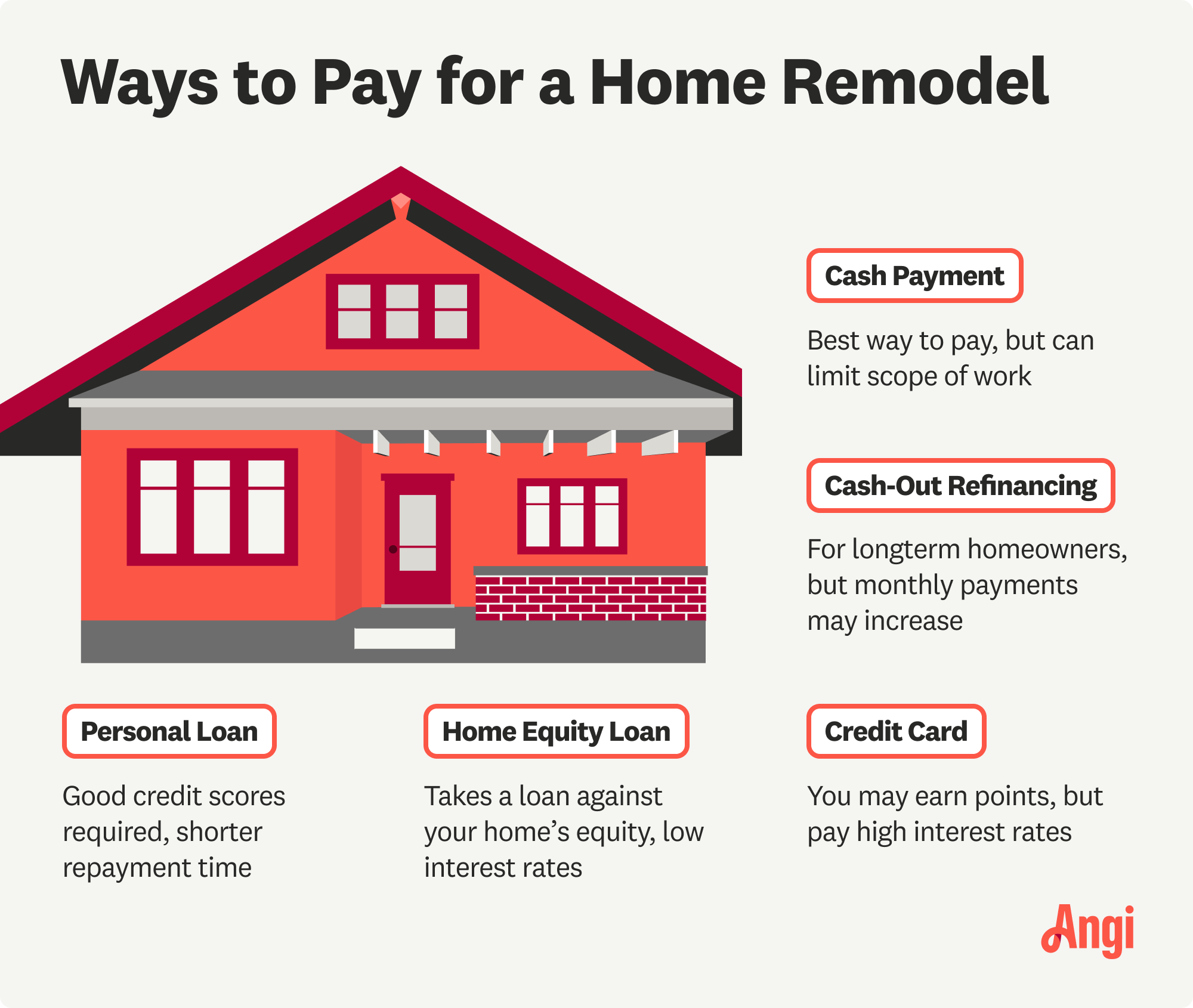
The average cost to remodel a house is $52,000, with an average of 60% to 70% of that going toward your kitchen and bathrooms, and the rest going toward flooring, painting, and other finishes in your bedrooms and main living areas. Your costs can increase to $225,000 if you opt for high-end finishes and want to make structural changes to alter your layout or square footage.
Before you dive into your project, you should know the difference between remodeling and renovating. With a renovation, you’re refreshing a space by adding new paint, new fixtures, or even new flooring. If your home is working well for you but it doesn’t feel as stylish as you’d like, a renovation is probably your best bet. Renovations are also great DIY projects, which can help you save some money.
With a remodel, you’re changing the actual layout or structure of a room or your entire house. That might mean changing your kitchen layout, removing walls, or building additional rooms. For remodels, it’s a good idea to bring in professionals to handle a lot of this work, as you’ll likely need structural changes.
Cost Based on Remodeling Scope
The cost to remodel a house ranges between $19,000 and $88,000 for most projects, with an average of $52,000, depending on the number of rooms you’re remodeling.
Be sure to set a realistic budget for your remodel so your wallet doesn't get hit with any financial surprises. A good guideline is to set aside 10% to 20% of your budget for unforeseen expenses.
Here’s a quick guide for what you can expect to do in your home based on your price range:
$19,000–$45,000: In this price range, you can paint, put in new floors, refinish cabinets, and replace countertops in a kitchen or bathroom.
$46,000–$88,000: At the mid-range, you’re getting the renovations from the lower end of the price spectrum, as well as a completely remodeled room or two, which could include replacing cabinets and countertops in a kitchen or a bathroom. With this budget, you also have the opportunity to install higher-end flooring like hardwood.
$88,000+: If you have a large budget, you can remodel your kitchen and bathrooms, and maybe even create a new layout by removing walls. You’ll also be able to paint, install new flooring, get custom cabinets, and have top-of-the-line appliances. If your budget is over $100,000, you can also consider home additions or conversions to increase living space, as well as structural changes to alter your existing layout.
Potential ROI
A whole home remodel can provide a return on investment (ROI) of anywhere between 40% and 80%. ROI is linked to the specific project you’re tackling as a part of your remodel, so you can use the table below to get an idea of what to expect from different portions of the work.
| Project | Average ROI |
|---|---|
| Bathroom remodel | 73% |
| Finishing attic | 60% |
| Finishing basement | 70% |
| Flooring replacement | 70% |
| Interior paint | 107% |
| Kitchen remodel | 96% |
| New deck | 70% |
| New front door | 188% |
| New garage door | 194% |
| New siding | 153% |
| Roof replacement | 57% |
| Window replacement | 65% |
Ways to Save
You can save money on your home renovation by collecting several quotes from highly-qualified contractors, and going with the best deal. Just remember that the lowest number isn’t always the best—you should factor in their reviews, as well.
DIYing some of the work is another way to save money on a renovation project, but you only want to take on specific projects yourself. Save the more complex jobs that involve electrical, plumbing, HVAC, or structural work to the pros.
The materials you choose will also influence the price you pay. If you’re on a tight budget, opt for standard materials over high-end options.
Kitchen Remodel
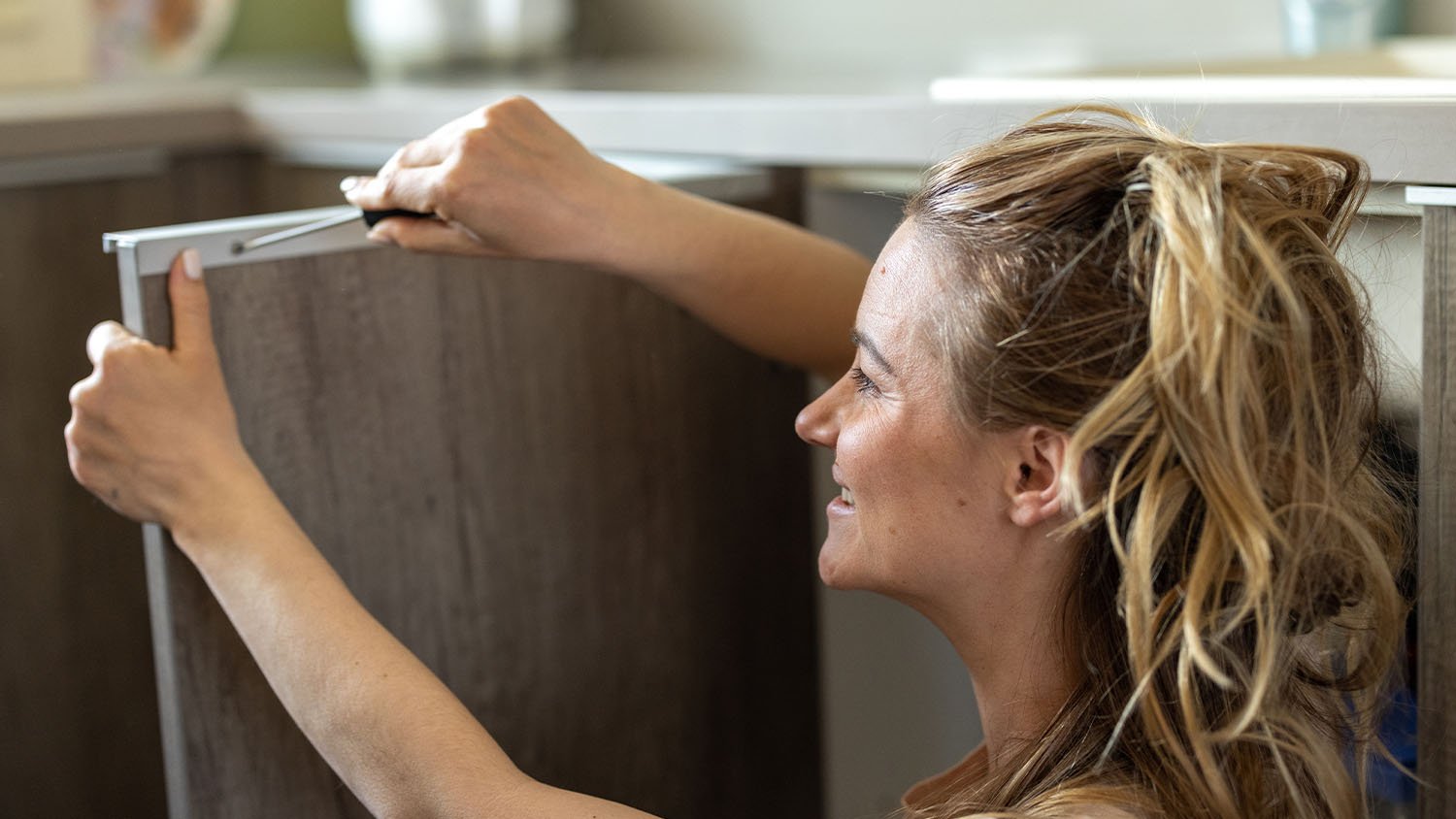
Kitchen remodels are one of the most common and most desired home improvement projects. The kitchen is the heart of your home, and if it’s not a joy to be in, your home will never look or feel as comfortable and inviting as it could.
Kitchen remodeling provides you with many opportunities to show off your style while also creating a space that is useful in a variety of ways. Perhaps best of all, kitchen remodels enhance your life AND the value of your home!
Costs
When you’re estimating the cost of a kitchen remodel, it’s a good idea to budget approximately $30,000 total or between $75 and $250 per square foot. Your choice of appliances and finishes can push this figure up or down significantly. Here’s a breakdown of specific projects and their typical costs.
| Kitchen Projects | Price Range |
|---|---|
| Lighting and electrical | $500–$2,000 |
| Plumbing fixtures | $200–$3,000 |
| Kitchen design | $1,500–$4,000 |
| New appliances | $3,000–$20,000 |
| Countertops | $1,900–$4,400 |
| Cabinets | $2,000–$40,000 |
| Flooring | $1,000–$4,000 |
| Paint and drywall | $900+ |
Potential ROI
Remodeling your kitchen is a great way to increase the value of your home. Kitchen remodels provide an ROI of anywhere from a 70% to 96% return on your investment when remodeling your kitchen.
Ways to Save
You can save money on your kitchen renovation by doing some of the work yourself, like refacing or refinishing your cabinets, installing a backsplash, and connecting plumbing fixtures. If you’re particularly handy, you can save on labor costs by installing flooring and cabinetry yourself, but it’s usually a better idea to leave this and the rest of the work to the pros.
Bathroom Remodel
Bathrooms are one of the top remodeling projects for many homeowners. It’s easy to see why—bathrooms provide a great return on investment, and they can make you, your family, and your guests more comfortable.
Whether you are adding or enhancing an en suite or you want to build a new small bathroom, few projects are as exciting and valuable.
Costs
The cost of a bathroom remodel ranges from $6,600 to $17,600 or $70 to $250 per square foot. This can change depending on the size of the bathroom and the fixtures and finishes you choose.
| Renovation Projects | Price Range |
|---|---|
| Countertops/vanity | $400–$4,300 |
| Plumbing | $100–$1,000 |
| Shower/bath | $200–$15,000 |
| Toilet | $375–$4,000 |
| Small fixtures | $500–$2,800 |
| Flooring | $1–$35 per sq ft |
| Tiling | $860–$2,800 |
| Electrical and lighting | $200–$700 |
| Storage | $250–$3,000 |
| Ventilation | $50–$400 |
| Mirrors | $160–$460 |
| Paint | $200–$600 |
| Labor | $50–$110 per hour |
Potential ROI
The average ROI for a bathroom remodel is 73%, but materials and bathroom size can bring that number up or down.
Ways to Save
Tackling DIYable jobs like painting and installing new mirrors and plumbing fixtures is a good way to save on a bathroom remodel. You can also save by limiting the amount of custom tiling you need, choosing to refinish your bathtub rather than replace it, and opting for tub or shower overlays or prefabricated materials.
Basement Remodel
Finishing or remodeling a basement is one of the most efficient ways to add more usable space to your home. A basement allows you to build extra bedrooms, add a bathroom, create a home gym or office, or even turn the space into a separate apartment unit. Just be aware that legally using the area as living space will involve installing points of egress, safety features, ventilation, heating, and more.
The amount of time and money needed to remodel a basement varies, but the payoff can be big.
Costs
The average basement remodel costs around $23,000 or between $30 and $75 per square foot. If you are framing an extra room or adding a bathroom, the price could sit closer to $35,000.
| Renovation Project | Average Prices |
|---|---|
| Design | $2,000–$5,000 |
| Framing | $1,000–$3,000 |
| Drywall | $1,500–$3,000 |
| Waterproofing | $2,500–$8,000 |
| Sump pump | $1,200–$2,500 |
| Insulation | $700–$2,140 |
| Flooring | $1,500–$11,000 |
| Building a bathroom | $6,600–$16,500 |
| Adding a bedroom | $3,000–$10,000 |
| Electrical and lighting | $1,000–$5,000 |
| Egress window(s) | $2,700–$5,800 each |
| Painting | $1,000–$3,000 |
Potential ROI:
Most basement remodels have a relatively high ROI of 70%. Your return could be even higher if you get remodeling permits to convert your basement to living space, which adds square footage to your home.
Ways to Save:
Painting your newly remodeled basement reduces your overall costs and can be a fun DIY project. Installing your own flooring can also help you save money on your basement remodel, and this is simple to do in a basement, where click-lock flooring is common.
Bedroom Remodel
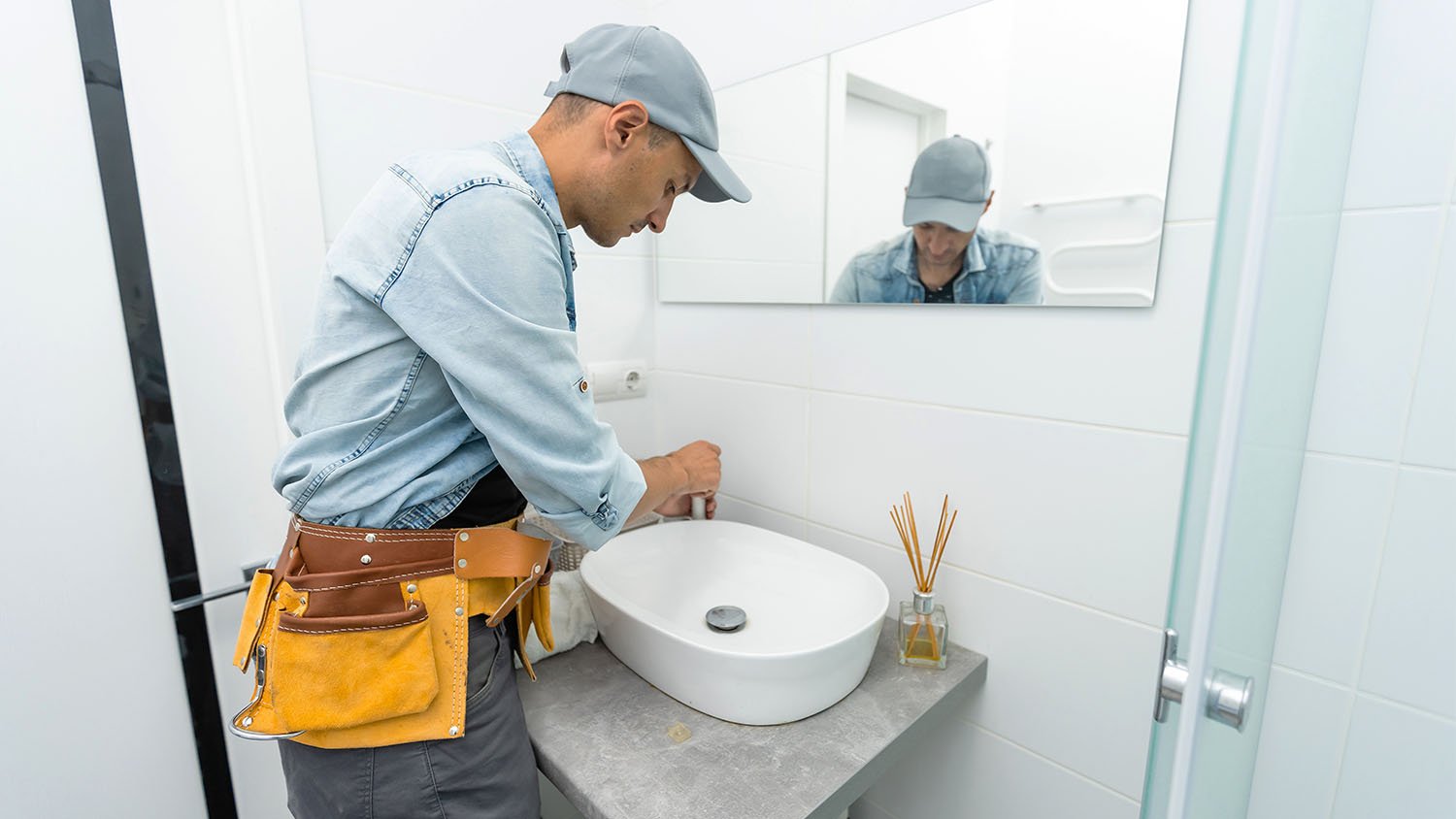
Remodeling a bedroom can be as straightforward as installing new light fixtures, putting in new flooring, adding or changing a ceiling fan, and finishing the room with new paint. But it can also be a much larger—and more costly—undertaking.
Building a primary suite with a bathroom and large closet is a popular choice that can come with a major pay off, not just in ROI but how much you enjoy spending time in the room, too.
Costs
Bedroom remodels cost between $12,000 and $28,000, on average. Your total could sit as low as $3,500 for minor aesthetic changes and go as high as $40,000 for a layout change, adding or removing closets, adding a master bathroom, and more.
| Renovation Project | Average Prices |
|---|---|
| Painting | $200–$1,600 |
| Closet remodel | $200–$1,500 |
| Flooring installation | $1,500–$4,800 |
| Ceiling fan installation | $100–$2,000 |
| Drywall installation | $1.50–$3 per square foot |
| Trim and molding | $600–$2,000 |
Potential ROI:
The ROI you’ll get from a bedroom remodel averages 55%, although it depends on the quality of materials, the cost of labor in your area, and more.
Ways to Save
You can cut, paint, and install trim to lower the amount you are spending on this remodel. Painting the walls yourself is also a great way to keep a little extra money in your pocket. Flooring installation is a relatively straightforward process if you choose the right materials, and it saves you from having to pay someone else to do it. Finally, find furnishings on your own to save on designer or home renovation consultant fees.
Living Room Remodel
Shared spaces are one of the most used rooms in the home, but living room remodels often take a backseat to kitchen and bathroom remodels. From small projects like new paint to big layout changes, remodeling your living room can make your family time even more special (and correct awkward living room layouts).
If you live in an older home, creating an open floor plan is a wonderful way to make better use of the space. Open floor plans are in demand, which can help you if you want to sell your house.
Costs
The average living room remodel costs between $2,500 and $15,000. The cost will be higher if the layout is changed and lower if most of the remodeling is cosmetic.
| Renovation Project | Average Prices |
|---|---|
| Painting | $300–$1,500 |
| New flooring | $1,500–$6,000 |
| Ceiling fan installation | $100–$2,000 |
| Drywall | $750–$3,000 |
| Trim and molding | $600–$2,000 |
Potential ROI:
The typical ROI of a living room remodel is 50%. You’ll see a higher ROI if you keep costs low and impact high by choosing cosmetic changes only.
Ways to Save:
Paint your new living room on your own to save some cash. Installing the new flooring in your living room can be a fun project that you’ll be proud of every day, and doing so can save you up to $6,000. Finally, decorating your living room on your own lets your taste really shine and is more affordable than having a designer do all of the work for you.
Flooring Remodel
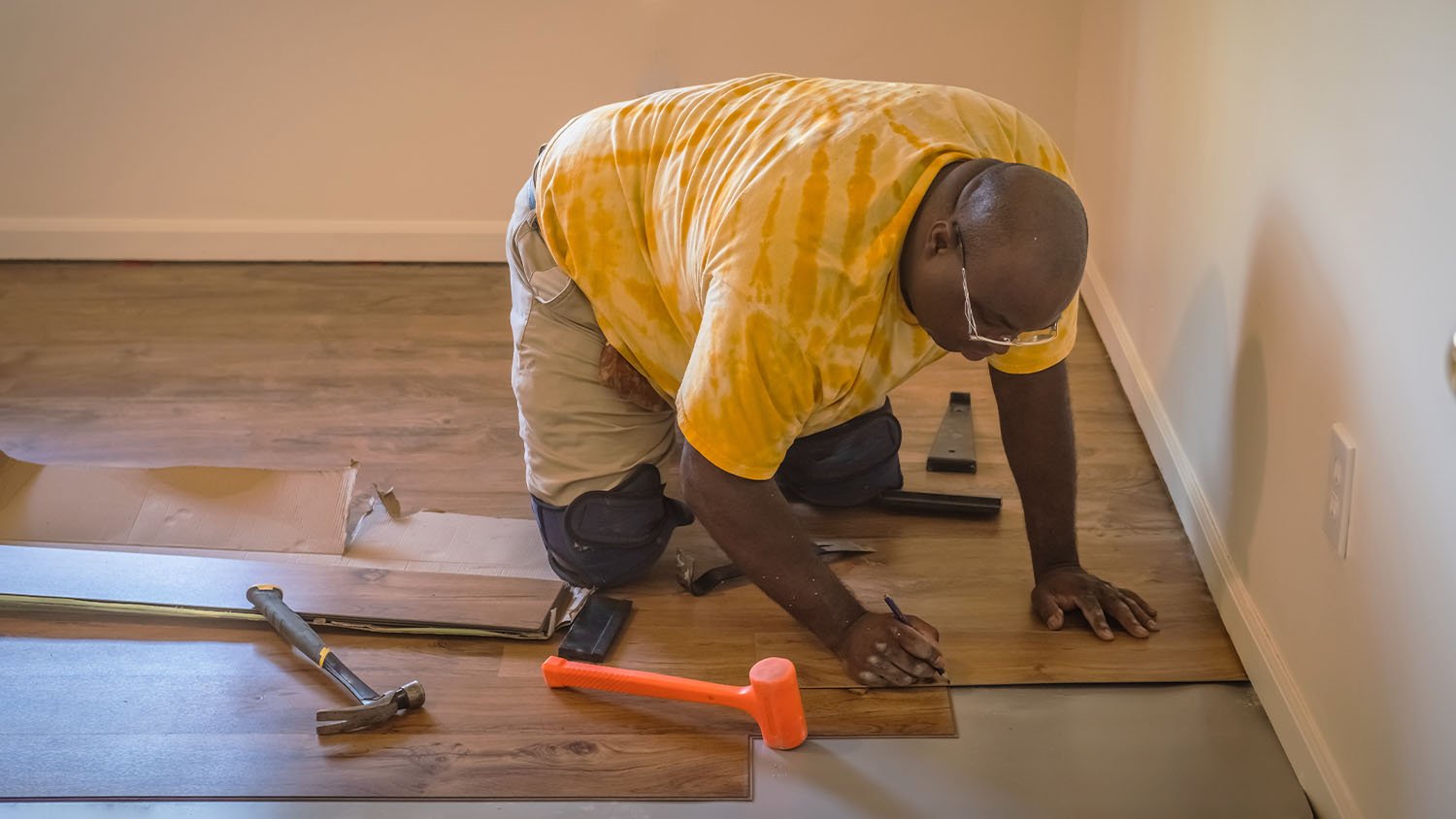
New flooring not only makes your home more attractive but can also increase its value. Changing out the old carpet for natural stone flooring or hardwood can be an excellent way to update and modernize a room as a standalone project or to cap off a large remodel. Thanks to the variety of flooring materials, you can easily find a material that fits your budget.
Costs
The cost of installing new floors varies based on the materials that you choose and how much work needs to be done to get the floor ready for installation. Expect to pay between $2 and $22 per square foot for most common options, with an average of $11 per square foot.
| Flooring Type | Installation Cost (per Sq. Ft.) |
|---|---|
| Vinyl or linoleum | $2–$14 |
| Polished concrete | $2–$16 |
| Laminate | $3–$13 |
| Carpet | $3.50–$11 |
| Ceramic, stone, or porcelain tile | $6–$20 |
| Hardwood | $6–$25 |
Potential ROI:
The potential ROI when installing new flooring averages 55%. This can vary based on the room, the square footage, and the type of flooring you choose.
Ways to Save
You can save a lot of money on labor by installing flooring on your own, provided you choose a flooring option that doesn’t take a ton of experience. Vinyl, laminate, and linoleum are the most suited for DIYers. You can also save money by repairing your floors if the damage is minimal. Finally, if you’re on a tight remodeling budget, don’t spring for the higher-priced flooring like porcelain tile or hardwood, and instead go for something less expensive, like linoleum.
Roofing Remodel
Your roof is the first line of defense against the elements. Repairing or replacing your roof after it has been damaged (or at the end of the material’s recommended life span) will keep your home safe.
No matter what style of home you have, the roof’s material can be both attractive and functional, so a new roof will boost home value. The price of replacing a roof varies based on the size of your roof and the materials you choose, but since your roof protects your home and has a major impact on curb appeal, it’s usually worth the price.
Costs
Replacing a roof costs an average of $9,500, and prices can range from $5,500 up to $45,000 or more, depending on the size and the roofing materials you choose. Because the cost of a new roof changes considerably based on the material and the size of the room, it is a good idea to get an estimate from a roofer to get an accurate idea of what you’ll have to pay.
| Roofing Type | Price Range |
|---|---|
| Asphalt shingles | $5,800–$20,000 |
| Tile | $8,500–$26,400 |
| Wood shake | $16,000–$27,000 |
| Metal | $5,700–$25,000 |
| Stone/slate | $5,800–$30,000 |
Potential ROI:
A new roof is a home upgrade with a high ROI. You could see a return of 48% to 57% on your investment.
Ways to Save
You can’t do much in the way of DIY work when it comes to roofing projects. Working on a roof is inherently dangerous, and always best left to a roofer. Plus, roof replacement requires permits, and most municipalities will only issue them to licensed roofing contractors. However, you can save a little money by opting for less expensive material, like asphalt shingles versus metal or stone. Also, compare prices from several qualified roofers to get the best deal.
Exterior Remodel

Exterior remodeling can cover a lot of things, including paint, landscaping, new siding, installing fencing, and more. No matter which projects you take on, exterior remodeling means a good ROI because of the improved curb appeal for your home. The ROI on landscaping projects can be particularly high for this reason.
Costs
The cost for exterior remodeling projects averages between $5,000 and $30,000, but your cost will depend on the materials, the specific projects you choose, and the amount of labor needed. Talking to a professional is a good idea to get an accurate estimate.
| Exterior Projects | Average Prices |
|---|---|
| Fence installation | $1,900–$4,800 |
| Exterior paint | $1,800–$4,600 |
| Landscaping | $1,200–$6,200 |
| Siding | $5,500–$18,000 |
| Window replacement | $3,400–$12,000 |
Potential ROI:
You’ll see a higher ROI of between 50% and 200% for exterior remodeling projects because many of them directly affect your curb appeal. Projects like landscaping, hardscaping, and door and window replacement will usually fetch the highest returns.
Ways to Save
There are a few ways to cut costs with exterior projects. Painting the outside of your home is a potential DIY project if you have the right equipment and can do the job safely. Tackling landscaping and some hardscaping projects can be physically demanding, but doing it yourself will save a lot of cash. Adding plants to existing landscaping yourself is an affordable way to beautify your property, too.
Additional Remodeling Projects
In addition to the projects we’ve discussed, there are plenty of other ways to remodel your property. Whether you’re trying to decide on a project that will make your home more comfortable and functional or you want to see the best ROI, there are options that will fit almost any budget.
Remodeling your garage, repairing or replacing the deck, or even something as simple as changing your exterior doors can inject your personal style into your house and raise your value.
Costs
The remodel projects listed below are just a few of the many other projects that you can take on to change the way the inside or outside of your home looks and works. Below are some other home remodeling costs you may want to consider.
Deck Installation: $4,300–$12,500
Replacing Exterior Doors: $500–$1,700 per door
Garage Remodel: $7,000–$30,000
Potential ROI:
Again, your ROI depends on which project you spring for, but some common ROIs include the following:
Deck: 66%
Replacing Doors: 65%–200%
Garage Remodel: 80%
Ways to Save
Doing work yourself can go a long way in terms of cost savings. Removing your old deck can save you a decent amount of money that the new deck builder would charge for demolition. Replacing doors on your own is a DIY project that handy homeowners can do.
Whether you’re an experienced DIYer or you’re just learning, doing some of the work on a remodel can help you save money. Anything you can do to minimize costs means you can spend more on materials, appliances, and labor. Once you figure out the reno cost per square foot, you’ll be able to allocate your budget to the areas that are most important to you.
There are some projects that are best left to professionals, though. If you want to change the physical layout of a room, replace a roof, or finish a basement, a local remodeling contractor will be able to do the work efficiently and safely.
Frequently Asked Questions
Yes, it’s possible to finance home renovation projects. If you’re buying a home that needs renovations, you can consider a home renovation loan, also called a 203k loan, which lets you finance the property as well as renovations. A construction loan can help buy you some time to pay, too, and a home equity line of credit (HELOC) or a cash-out refinance could also suit you, depending on how long you’ve owned your home and how much equity you have in it.
A whole house renovation will take between six and 12 months, on average, but your timeline could extend to 18 to 24 months if your project involves major structural changes, home additions, dormers, and conversions. Smaller renovations for single rooms or minor conversions could take between three and six months. Ask your home remodeler for a timeline before signing your contract to avoid surprises.
The 30% rule for renovations suggests that you shouldn’t spend more than 30% of your home’s value on remodeling or renovating. This isn’t a hard and fast rule, but it does help keep your remodeling budget in check and prevent overspending. Laying out more than 30% of your home’s value for a remodel could lead to reduced ROI, especially if your home wasn’t in terrible shape to begin with.



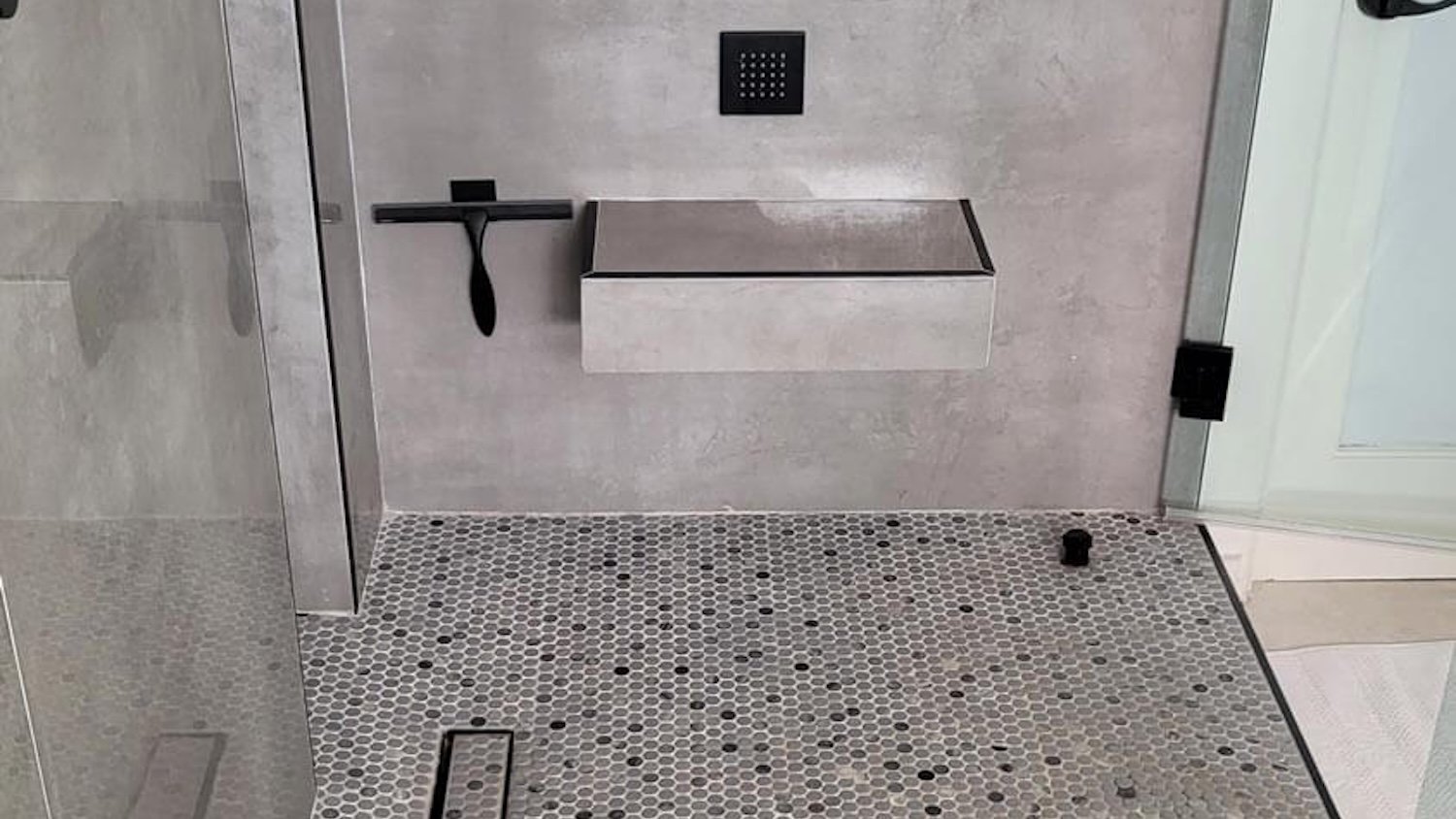

- Bathroom Remodeling
- Kitchen Remodeling
- Shower Installation
- Stair Installers
- Bathtub Installation
- Shower Door Installers
- Kitchen Design
- Bathroom Design Companies
- Storm Shelter Builders
- Pre-Made Cabinets
- Kitchen Refacing
- Bathtub Replacement
- Ceiling Tile Installation
- Suspended Ceiling Companies
- Residential Designers
- Stair Builders
- Remodel Designers
- Shower Enclosures
- Home Renovations
- Kitchen Renovations
- Garage Remodeling
- Grab Bar Installation
- Walk-In Tub Installers
- Tub to Shower Conversion
- Balcony Contractors
- How to Remodel a House on a Budget
- Remodel vs. Renovation: Pros, Cons, and Costs
- Kitchen Remodel Checklist to Help You Plan Your Project
- Here’s How Much a Bathroom Remodel Will Impact Your Home’s Value
- 6 Tips to Prepare for a Successful Home Remodel
- What Is the Best Time of Year to Remodel Your Home?
- Kitchen Remodel ROI: Is a Kitchen Remodel Worth It?
- The Best Return on Investment Home Improvements That Look Great and Add Value
- How to Prioritize Home Improvement Projects
- What Are the Best Bathroom Upgrades for Resale Value?











